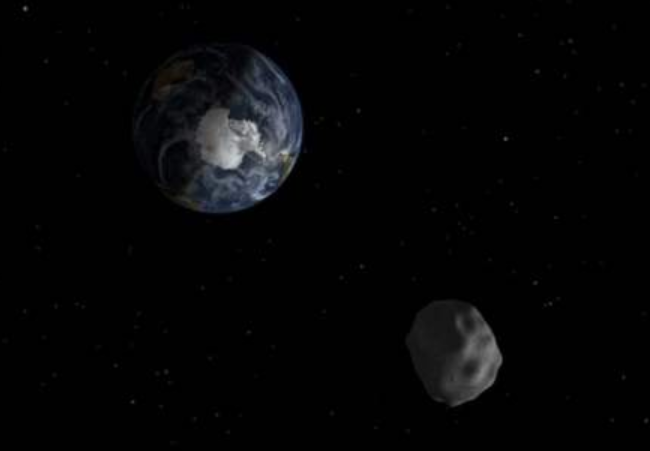The mirrors left on the Moon allow Peter to make a very accurate measurement.
留在月球上的镜子能让Peter进行非常精确的测量。
Using a telescope with a built-in laser, Peter can precisely measure the distance from the Earth to the Moon.
利用内置激光的望远镜,Peter能够精确测量地球到月球的距离。
We orient the telescope so that it is facing the Moon.
我们精确定位望远镜,使其对准月球。
The laser light, coming out of the telescope, then goes directly up to the Moon.
激光从望远镜里射出去,直接射向月球。
It can be reflected by the reflector and it then comes right back through the tube again,
它能够被反射镜反射,然后就被重新反射回镜筒里,
makes its way through the optics and we sense it inside the building.
通过光学的手段,我们在房子里能接收到它。
OK, there it is. Look at that.
啊,在那里。瞧!
There's a really big crater, you can see the shadow in there.
是个很大的弹坑,你可以看到那里有个阴影。
Timing how long it takes the laser beam to go out and bounce back, Peter can precisely calculate the distance to the Moon.
测量出激光射出和反射回所化的时间,Peter可以精确地计算出到达月球的距离。

But trying to hit that tiny mirror, so far away, requires very careful alignment and a bit of perseverance.
但要在如此远的距离击中那个细小的镜子,需要非常仔细的校准,需要一点毅力。
We may send out a thousand million billion photons,
我们发出万亿兆的光子,
whereas coming back... coming back into the telescope might be ten. Ten! Or five, or none!
可能反射回望远镜的就只有10个。10个!甚至5个,甚至一个都没有!
So it is still a very hard experiment because everything has to work just right.
所以这还是个艰难的实验,因为一切都必须做得恰到好处。
How accurately can you make that measurement, off Neil and Buzz's reflector and back again?
你可以把测量做得有多精确,射向尼尔和巴兹留下的镜子并反射回?
One to three centimetres. Over a quarter of a million miles.
1到3厘米。超过25万英里的距离里。
Over a quarter of a million miles out, quarter of a million miles back.
射出去25万多英里,反射回25万多英里。



